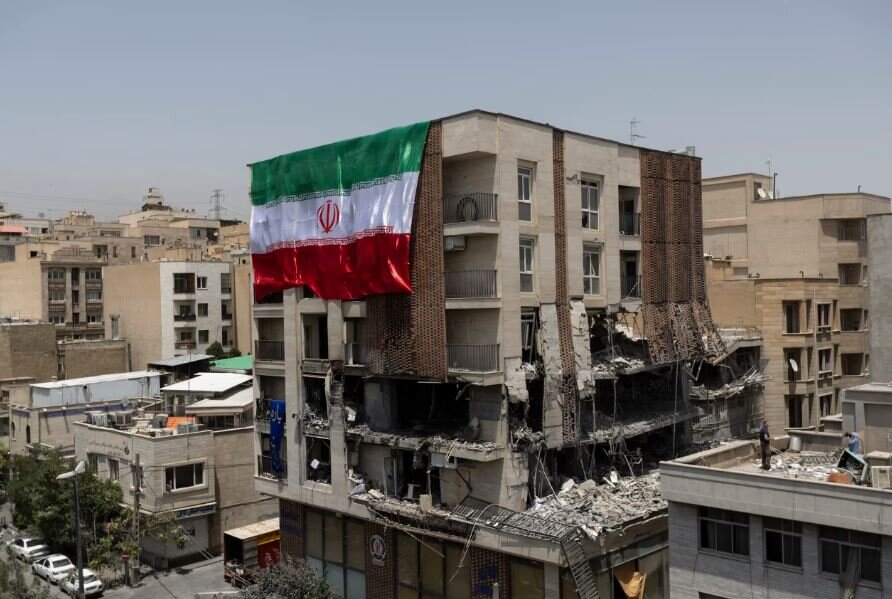Israel lost on the battlefield — and also in the diplomatic arena

TEHRAN – Although the Iran-Israel war began in the early hours of Friday, June 13, with the Zionist regime’s blatant aggression against Tehran—an act any fair-minded observer would condemn—it nonetheless drew mixed reactions from world leaders.
According to international news agencies, between June 13 and June 23, 2025, countries’ positions fell into three categories: those condemning the attacks, those supporting Israel, and those remaining neutral or silent.
Many governments worldwide unequivocally condemned Israel’s early-morning military assault on Iranian territory. Some issued independent statements, while others endorsed joint declarations through alliances or international forums. Several nations, acting within the Shanghai Cooperation Organization (SCO), denounced Israel’s attacks. Others voiced their outrage in a joint statement at an extraordinary Islamic summit. Additionally, some countries, through the recent BRICS coalition declaration in Brazil, condemned the assault on the Islamic Republic of Iran.
According to Nemafar’s studies and statistics, over 30 countries across multiple continents condemned Israel’s June 13 attack on Iran. These include: Russia, Belarus, Kazakhstan, Kyrgyzstan, Uzbekistan, Tajikistan, Turkey, Azerbaijan, Egypt, Malaysia, Oman, Pakistan, Kuwait, Yemen, Venezuela, Indonesia, Cuba, North Korea, China, India, Saudi Arabia, Qatar, Afghanistan, Iraq, Lebanon, Jordan, Japan, Brazil, Algeria, South Africa, Bahrain, Brunei Darussalam, Chad, Comoros, Djibouti, Libya, Mauritania, Somalia, Sudan, and the United Arab Emirates.
While these nations shared a common stance in condemning Israel, their level of support for Iran varied significantly. Some, like Japan, limited themselves to condemning the attack and urging diplomatic solutions. Others, such as Yemen, went as far as expressing readiness for military cooperation against the aggression.
Notably, some neighboring countries went beyond formal diplomatic condemnations, with top officials directly voicing explicit support for Iran. For instance, Turkey’s President wished Iran success, while Pakistan’s Defense Minister publicly backed our country.
In contrast, only a small group of mostly Western nations aligned with Washington—including the U.S., U.K., France, Germany, Canada, Albania, the Czech Republic, Argentina, Ukraine, Australia, and Italy—asserted Israel’s right to “self-defense”. This support came through collective statements (notably the G7 declaration) or individual remarks, such as those by Australia’s Foreign Minister.
Even so, most of these countries simultaneously called for de-escalation and a return to negotiations. With fewer than ten nations openly backing Israel, this group found itself vastly outnumbered by the overwhelming majority condemning the attacks.
This underscores the pro-Israel front’s diplomatic defeat in its hybrid war against Iran—a stark rebuttal to claims of Iran’s isolation or a global coalition favoring Israel.
From an international law and regional diplomacy perspective, it’s significant that many countries—particularly OIC members—expressed support through collective statements and foreign ministers’ contact groups. These joint declarations not only condemned the attacks but also urged independent investigations by bodies like the IAEA and called for UN Security Council involvement. This transformed individual stances into a regional consensus with greater legal and political weight, potentially laying the groundwork for stronger international resolutions.
Key takeaways from these developments include:
1. The intensity of condemnations: The number of countries that denounced Israel’s attack was roughly four times greater than those supporting it. This stark disparity indicates that, in both public opinion and diplomatic arenas, condemnation of the action rests more firmly on the principles of national sovereignty and the prohibition of military intervention.
2. Collective action: Many Islamic and non-Islamic countries issued statements not merely in isolation but within the framework of multilateral agreements. These group declarations carried greater political weight and highlighted the unity of their positions.
3. Broad alignment among Islamic countries in condemnation: The majority of Islamic countries—except for a few such as Morocco, which preferred to remain silent—condemned the attack, either collectively through the sessions of the Organization of Islamic Cooperation or individually through separate statements.
4. Implicit conditions on support: The countries that backed Israel effectively framed their support with qualifiers such as recognizing the “right to self-defense” and emphasizing the “need to avoid escalation.” This indicates that even among Israel’s supporters, there are concerns about the potential regional repercussions of the attack.
5. Future prospects: This situation could pave the way for new Security Council resolutions or increase the role of regional organizations in managing crises in West Asia. In particular, the collective statements issued at Islamic summits may provide mechanisms for pursuing the implementation of principles enshrined in international resolutions.
What is clear is that the outcome of this confrontation on the international stage will significantly affect not only the relations between the two parties directly involved but also the balance of power and the role of international institutions in West Asia. Moreover, it thoroughly undermines the narrative of a global consensus against Iran and, conversely, highlights Israel’s diplomatic isolation.
Leave a Comment